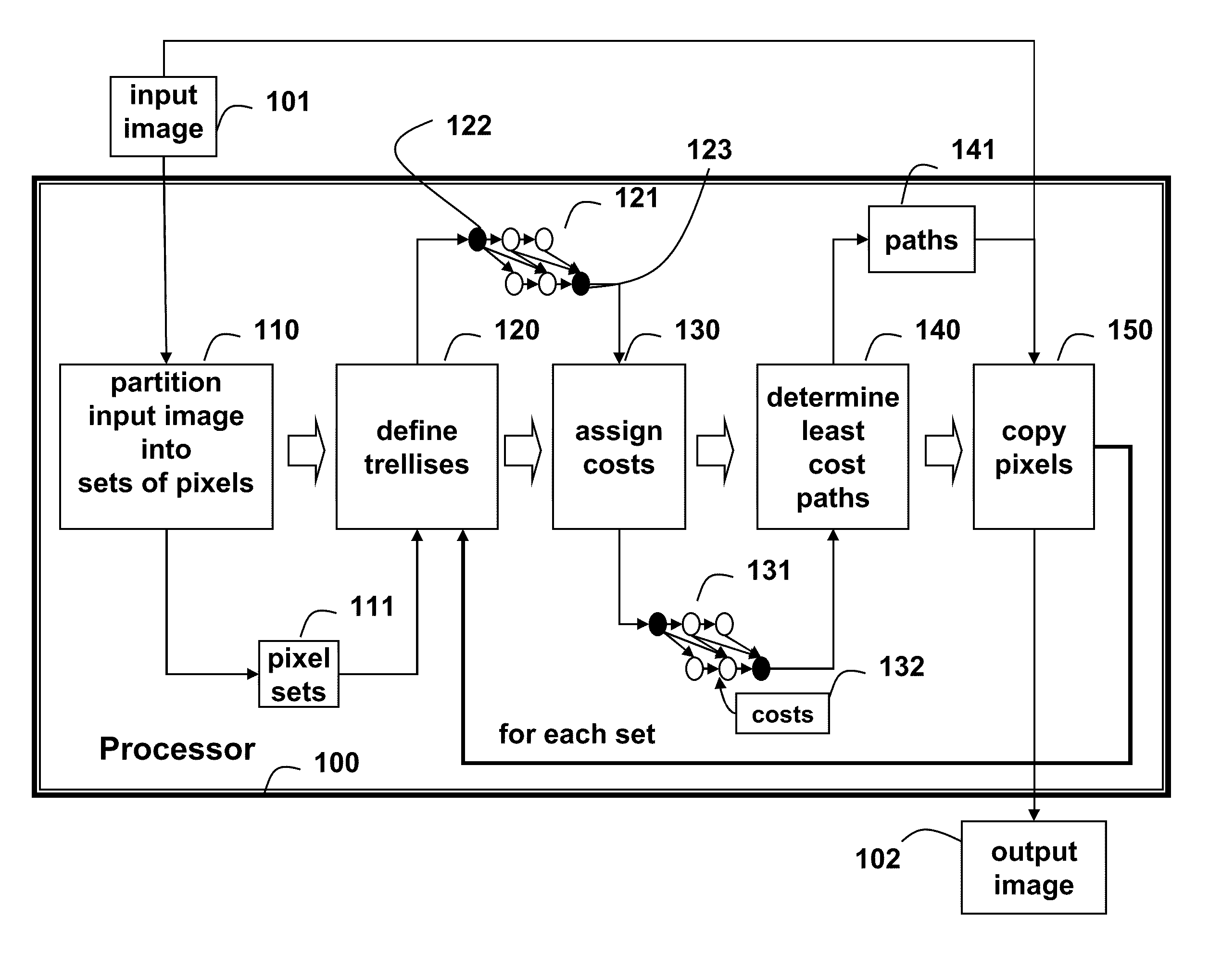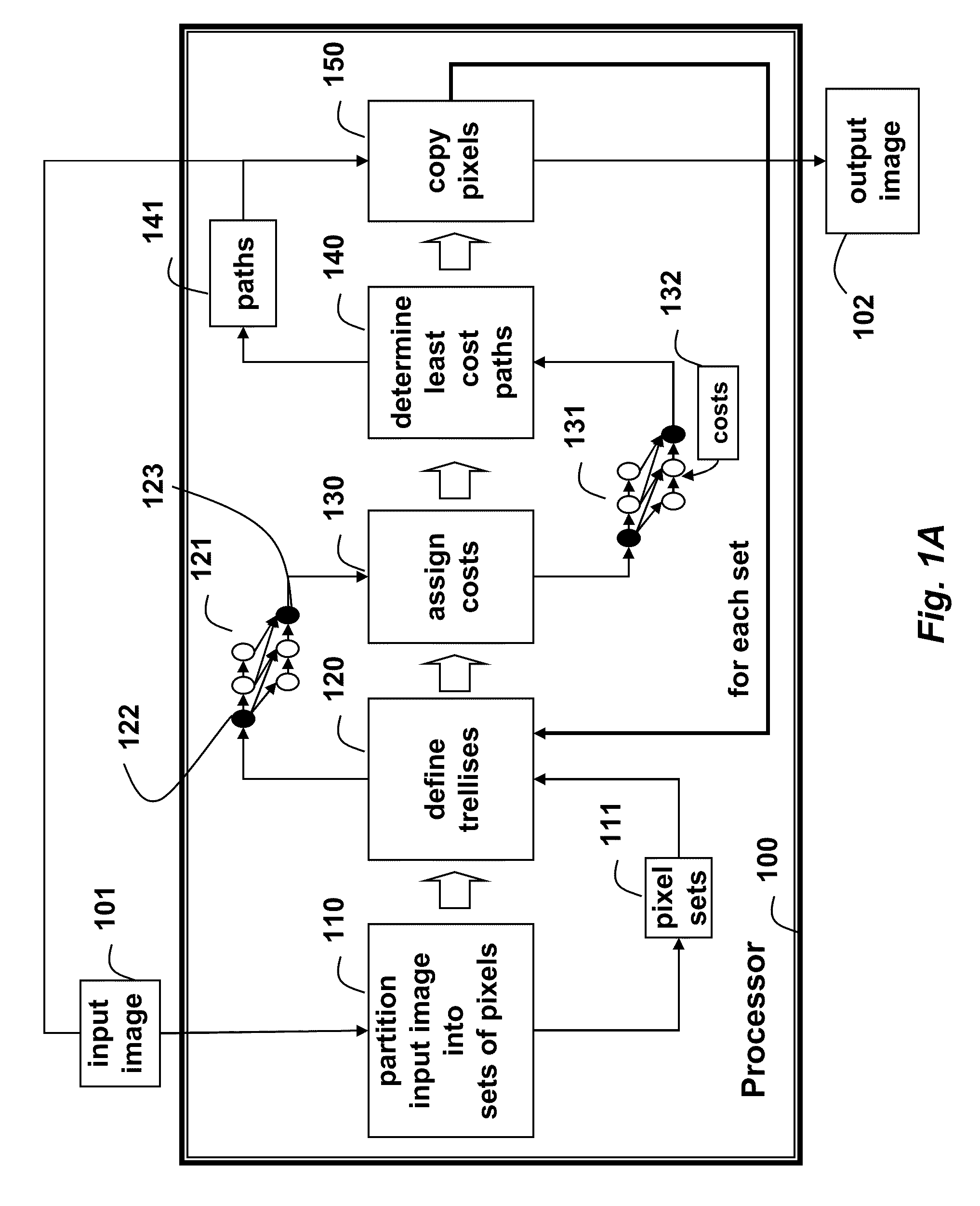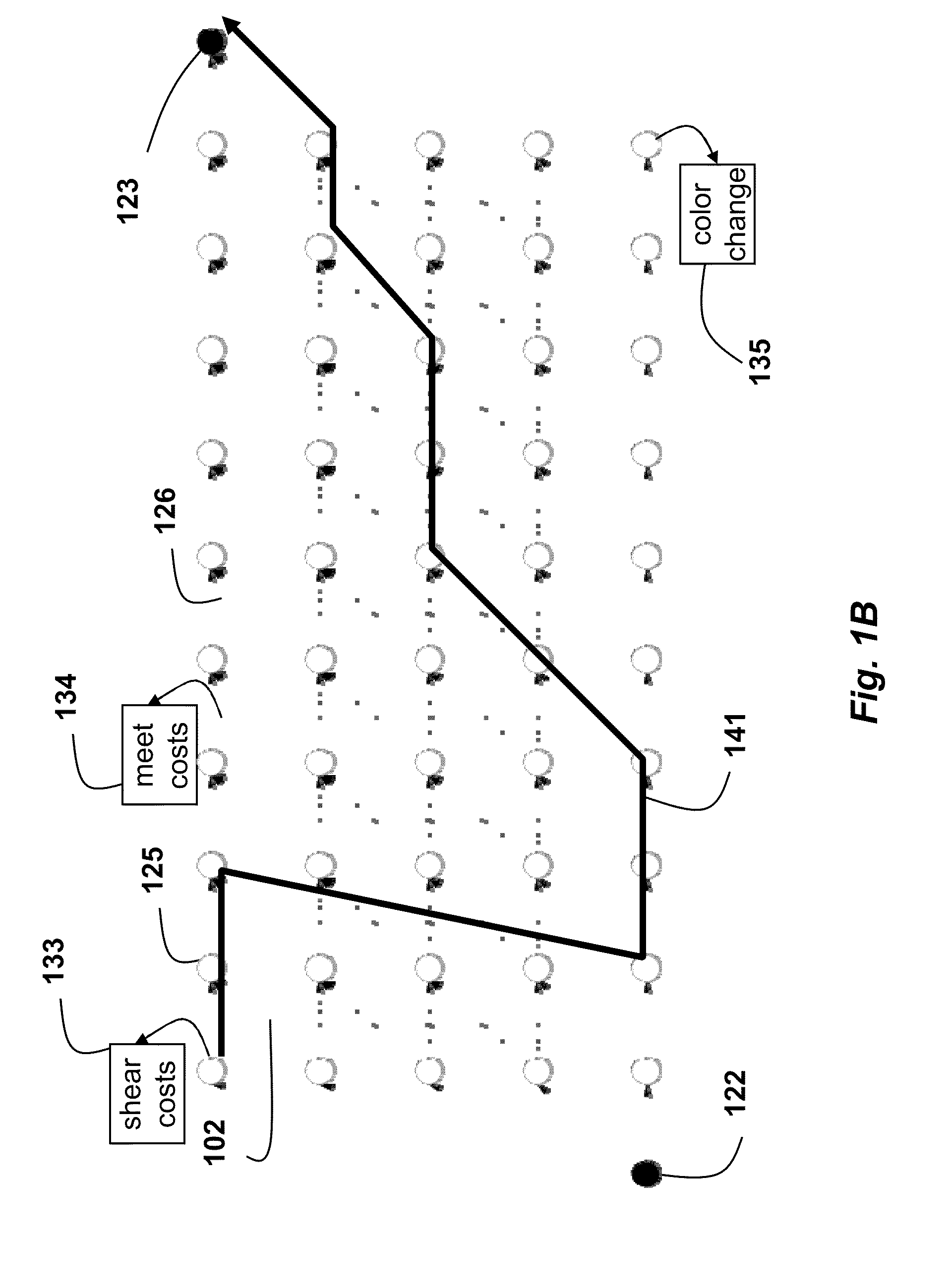Method for Temporally Editing Videos
a temporally edited and video technology, applied in the field of image processing, can solve the problems of insufficient image scaling, limited cropping, and insufficient scaling, and achieve the effect of reducing artifacts and distortions of conten
- Summary
- Abstract
- Description
- Claims
- Application Information
AI Technical Summary
Benefits of technology
Problems solved by technology
Method used
Image
Examples
examples
[0102]FIG. 8 shows the darting pattern for removing 112 of 512 columns of pixels with a trellis of bandwidth of 12 and a girth 90, as determined by the method of this invention. In this example, darts were propagated from the center scanline using information back-propagated from the top and bottom scanlines.
[0103]FIG. 9 shows and example input image.
[0104]FIG. 10 shows the result after removal of the darts. Even though many disconnected groups of pixels are removed, contours are well preserved, even the pixel-wide tether lines 801.
[0105]FIG. 10 shows the result of removing 112 columns then removing 40 rows.
[0106]FIG. 11 shows a similar result obtained using convention seam carving. Seam carving breaks coastline above the left astronaut and the tether line at bottom, clips the antenna at top, and fuses the continents near the antenna.
[0107]The darting result is free of those artifacts and generally does a better job of retaining image texture and packing it together. For example, it...
PUM
 Login to View More
Login to View More Abstract
Description
Claims
Application Information
 Login to View More
Login to View More - R&D
- Intellectual Property
- Life Sciences
- Materials
- Tech Scout
- Unparalleled Data Quality
- Higher Quality Content
- 60% Fewer Hallucinations
Browse by: Latest US Patents, China's latest patents, Technical Efficacy Thesaurus, Application Domain, Technology Topic, Popular Technical Reports.
© 2025 PatSnap. All rights reserved.Legal|Privacy policy|Modern Slavery Act Transparency Statement|Sitemap|About US| Contact US: help@patsnap.com



